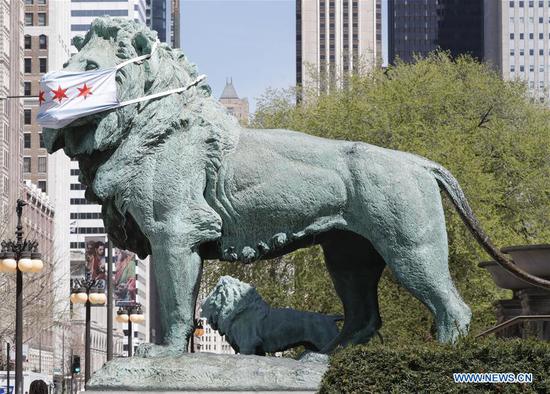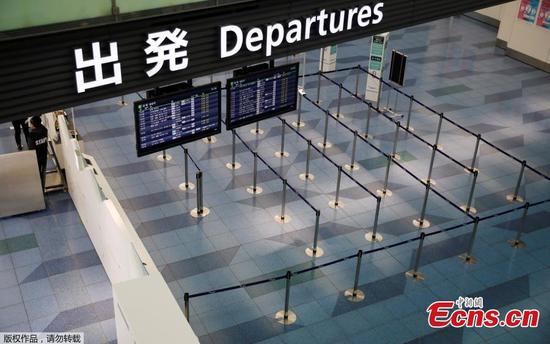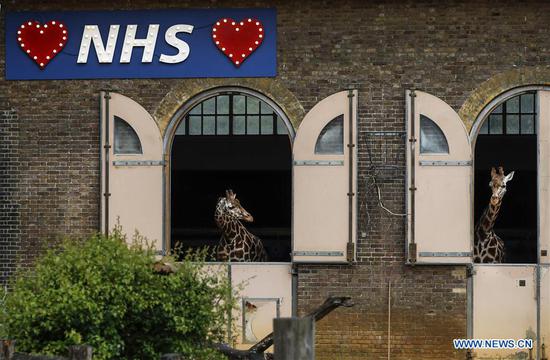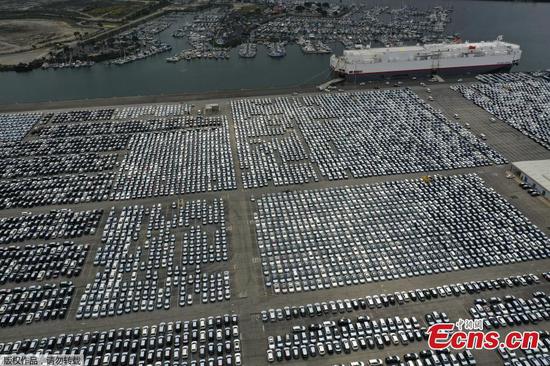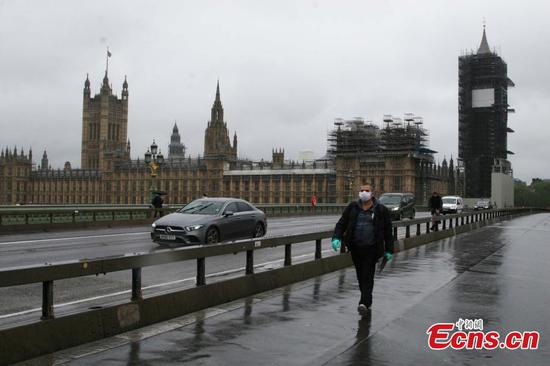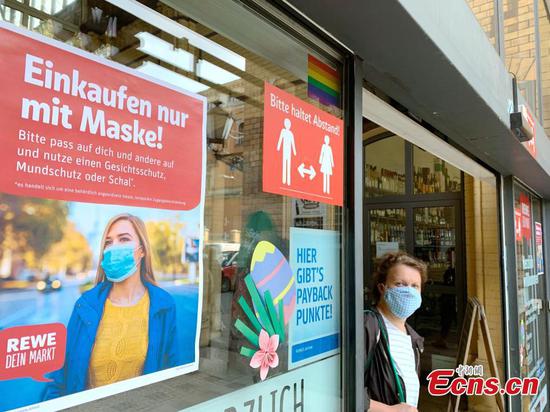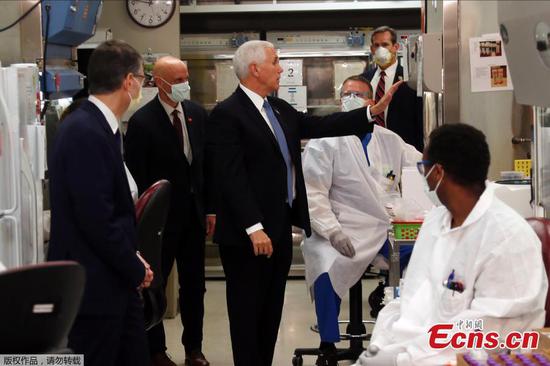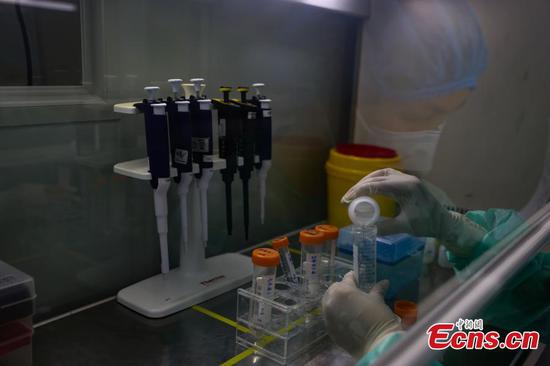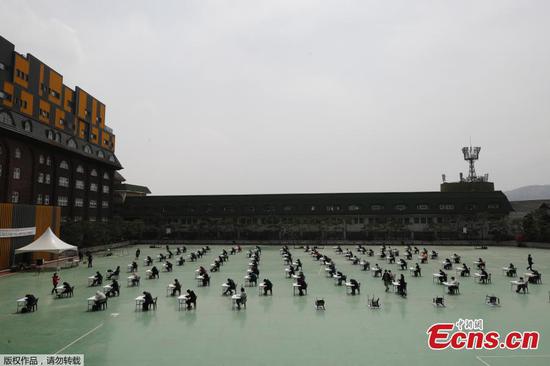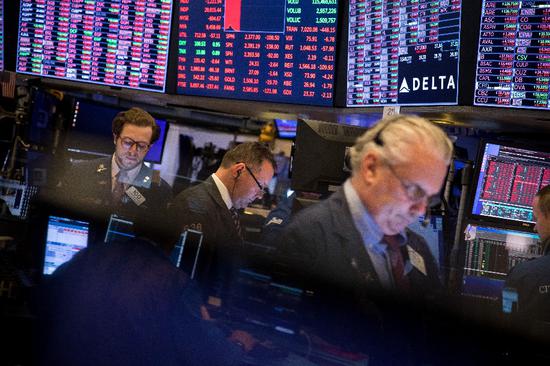
Traders work at the New York Stock Exchange in New York, the United States, (Photo by Michael Nagle/Xinhua)
The world has rarely seen, if ever, four market circuit breakers and negative oil prices during the same period, while numerous planes are grounded in some of the world's busiest airports and production has stopped in plants across the world.
The sudden outbreak of the novel coronavirus disease, or COVID-19, has frozen the world economy and presented the toughest financial outlook in decades.
Can the world economy recover? Will there be a transformation in globalization and supply chains? What are the opportunities after the pandemic?
Those are questions concerning the well-being of humankind, and demand immediate answers.
HOPE AMID RECESSION
"It's just gut-wrenching," dairy farmer Jason Leedle from the U.S. state of Wisconsin, who has recently had to dump more than 10 tons of milk each day, told visiting Reuters reporters.
Mass closures of restaurants and bakeries have driven down demand, while logistics are not up and running as usual.
"All I can see is that line going down the drain," Leedle said.
The extraordinary picture reflects the obvious toll of COVID-19 on the economy. The International Monetary Fund (IMF) projects that the global economy is on track to contract sharply by 3 percent in 2020, making it the worst recession since the Great Depression of the 1930s.
Cumulative loss to global GDP over 2020 and 2021 from the pandemic could be around 9 trillion U.S. dollars, greater than the economies of Japan and Germany combined, the IMF has also said.
One cannot help but asking: Is it going to be a long-term recession, or just a short-period contraction?
The IMF predicted in a report published in April that the COVID-19 outbreaks in most countries will peak in the second quarter and then subside in the second half of this year.
The report also expects that global growth in 2021 will rebound based on that assumption. But it also warns that the recession could go deeper and last longer for lack of global coordination.
Stephen Roach, a senior fellow at Yale University's Jackson Institute of Global Affairs, told Xinhua recently that unlike the financial crisis in 2008-2009, when "a crisis began in the financial sector and spread to the real economy," today's crisis is one "that has begun in the real economy and spread back to the financial sector," as countries worldwide try to contain the spread at the expense of massive lockdowns and the halting of economic activities.
Unprecedented policies to resume production, ease financial pressure, boost market confidence and prevent debt risks have been rolling out in each country, while the world waits to see if the measures work.












